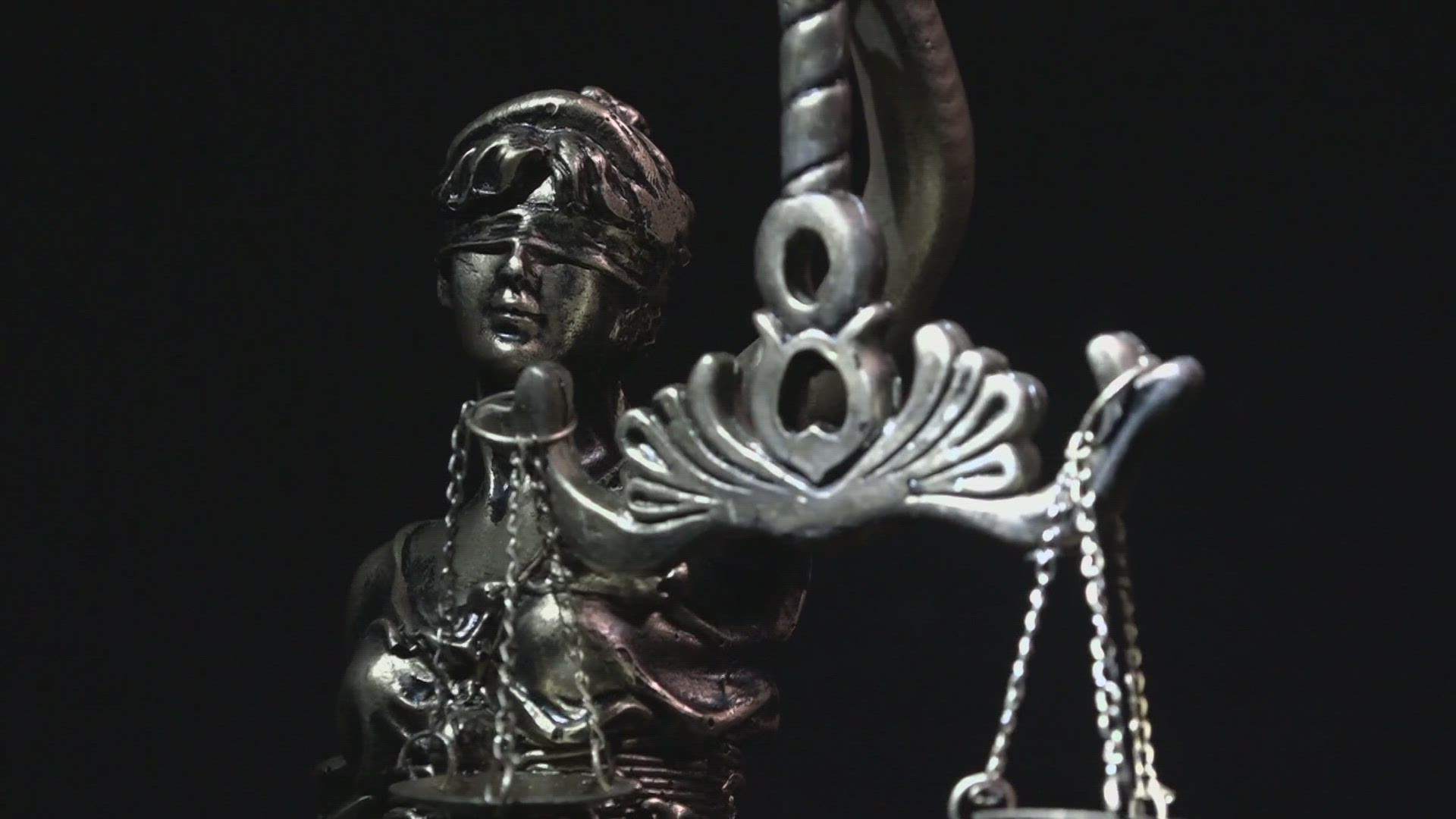‘We’re going in circles’: Phoenix double murder case keeps getting dropped in court, suspect released
The double murder case falls into the same pattern after the suspect is repeatedly found incompetent.
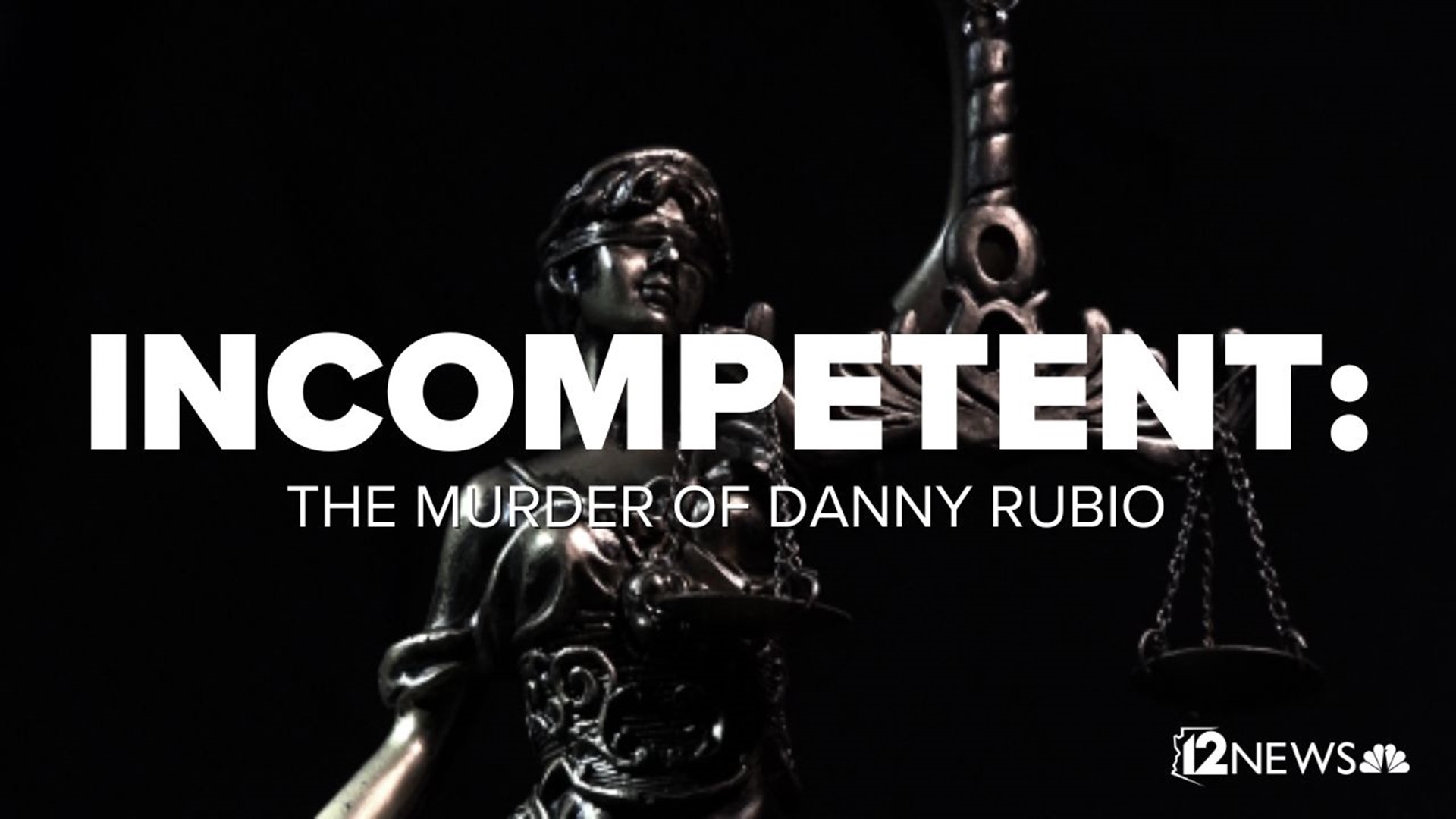
The evidence seemed clear. Phoenix police found a suspect in an alleyway with blood on his belongings and knives strapped to his body. He was on the same block as the man who’d just been stabbed to death earlier in the night.
But the murder case in 37-year-old Danny Rubio’s death hasn’t been so clear in the courts. Nearly four years later, the case is stuck. The same suspect has been arrested on the same murder charges three different times.
Chapter 1 The murders
'He didn’t deserve to get his life taken away the way it was'
You notice it as soon as you walk into Michelle Rubio’s living room – the table overflowing with candles, flowers, photos and trinkets. It’s a tribute to her brother, Danny Rubio, who was murdered near his home.
“He was my mom's and my dad's only son,” Michelle Rubio said. “He was the oldest of five siblings. He would always come to me and my sisters and he'd be like, ‘Do you guys want some pizza? I'll go grab pizza.’ And we'd stay up late at night. Just eating pizza, joking around, laughing.”
On July 5, 2020, Danny Rubio was trying to get home near 36th Street and Thomas Road. But before he made it inside, he was stabbed to death outside his neighbor’s home.
“When all of this unfolded, it was so just shocking and traumatic,” said Chelsea Friday, Danny Rubio’s neighbor. “But the behavior wasn't shocking from this specific individual.”

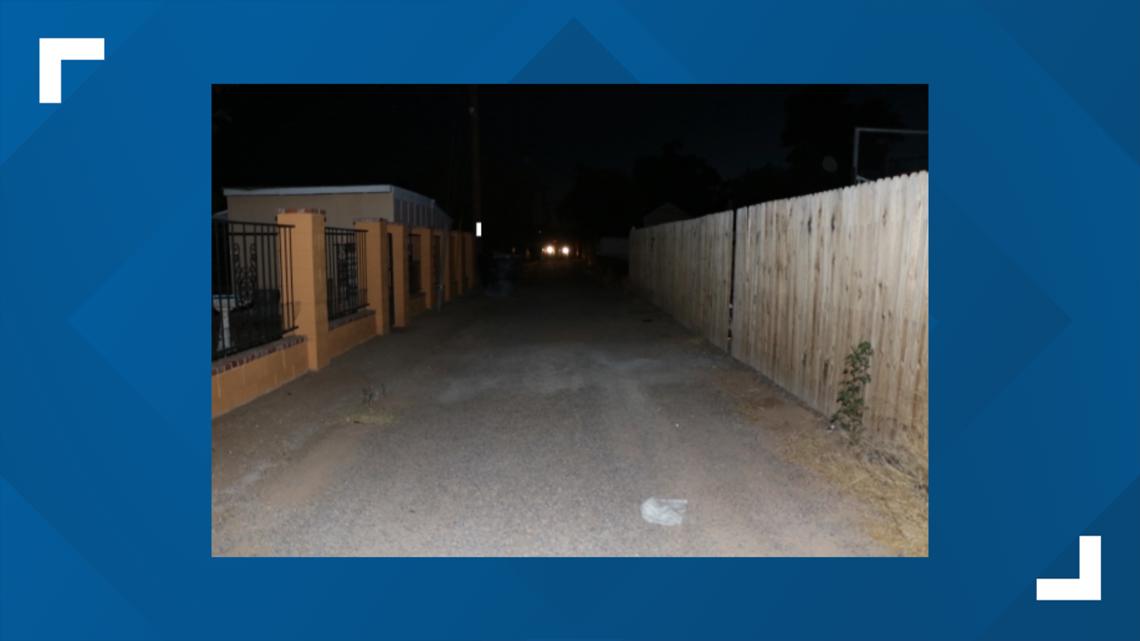
People in the neighborhood had already been on alert after hearing noises outside that night. Once officers arrived on the scene, witnesses pointed them to a nearby alleyway. Many said they had seen this man in their neighborhood before. He appeared to be homeless and some neighbors had concerns about his well-being.
“He’s known in this neighborhood,” Friday said. “We know that his name is Major.”
When police started searching, they found a man sleeping in a nearby alley. There was blood on his clothing and backpack. He was also carrying several knives, some strapped to his body. Major McKenzie was arrested on the spot.
“We know that he's struggled with homelessness,” Friday said. “He’s squatted in a lot of the empty houses.”
She thinks Danny Rubio might have been trying to get McKenzie off her property when he was killed. But according to the Phoenix police report, McKenzie told officers he thought he could have been robbed. He later stated he would kill anyone who tried to rob him. Police wrote that his comments were “sporadic.”
As they went through his belongings, investigators found another troubling discovery. McKenzie had been carrying the picture of a different dead man. It was a Silent Witness flier for Juan Martinez. Martinez was killed in May 2020, just a few weeks before Danny Rubio, in the same neighborhood.

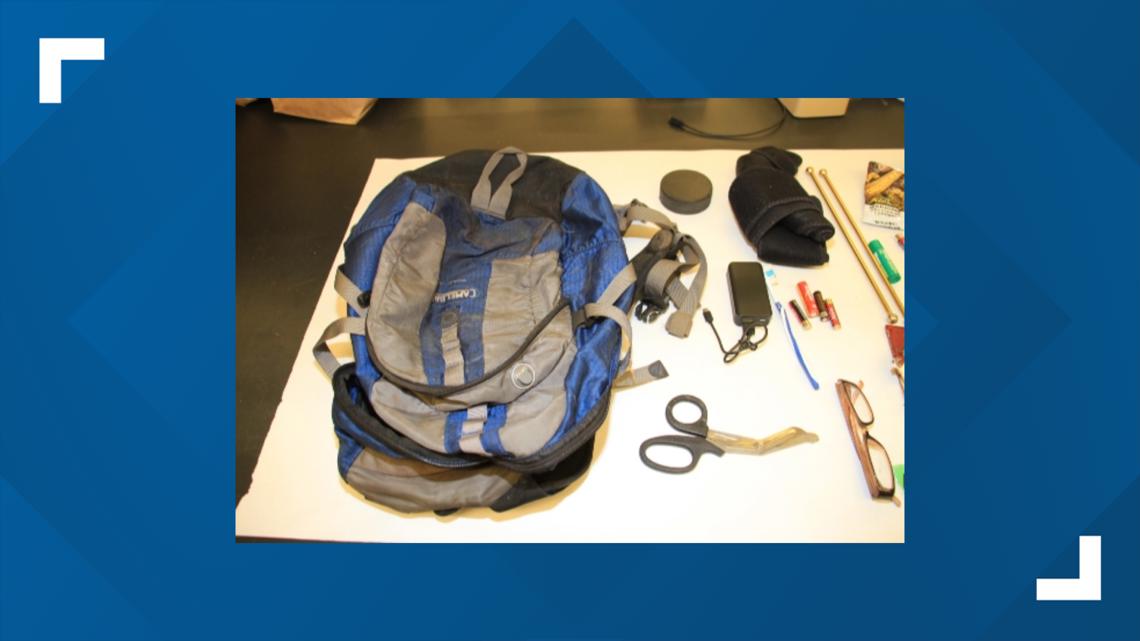
Ultimately, McKenzie was charged with both Martinez's and Danny Rubio’s murders.
“He didn't deserve to get his life taken away the way it was,” Michelle Rubio said.
Chapter 2 The revolving door
'He should have been somewhere getting help'
McKenzie wasn’t just known to this neighborhood. He was known to the system.
Court records show he’d been in and out of jail and prison and mental health care facilities for most of his adult life. He was diagnosed with schizophrenia as a young adult in the '90s and he served prison time for violent crimes, like assault and robbery, in California and Arizona and in Georgia under a different name.
Throughout this time, records repeatedly reference his mental illness. Still, he wound up on the streets in Danny Rubio and Friday’s neighborhood.
“There's no reason he should have been on the streets,” Friday said. “He should have been being monitored, he should have been somewhere getting help. If those resources were more accessible to him, maybe this wouldn’t have happened.”
The 12News I-Team found he was being monitored in the weeks before Martinez and Danny Rubio were killed.
In the spring of 2020, police records indicate McKenzie was staying at a behavioral health home in the West Valley. On May 17, officers took him to a psychiatric facility. The paperwork doesn’t say why, just that it was involuntary. Two days later, he was discharged.
The I-Team examined his discharge paperwork, which he still had when he was arrested. It showed he was supposed to get more help. It states a follow-up appointment was requested, but it also reads that McKenzie was not willing and able to sign off on it and that no one was warned about his release.
But there is someone who wishes she had been.
“The courts, the system that's been put in place to keep all of us safe, including Major, failed,” Major’s sister told the I-Team.

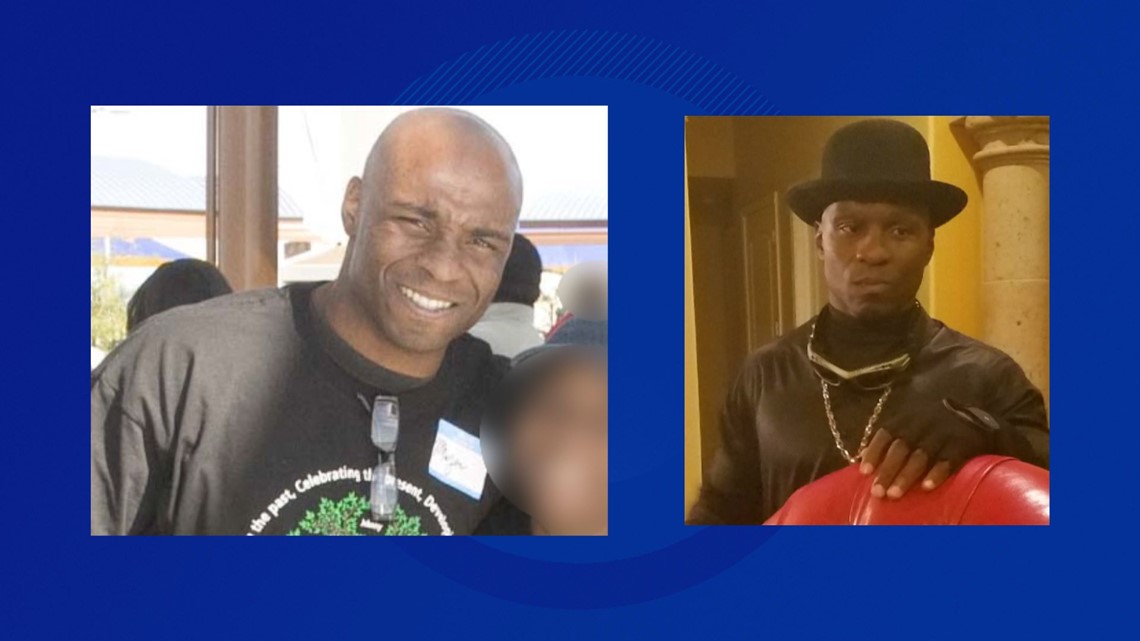
She asked that we conceal her identity because she works in health care.
“We petitioned him many times because we did not want him to be a victim, nor anyone else,” she said.
For years, she said she and her family tried to get her brother help.
“The weight of not being able to help your own family member who you see needs help and wants help. I would not wish it on anybody,” she said.
But many times, she said he’d be released from care without their knowledge, despite wanting to be involved. She wants people to know that he's loved.
“The sad thing is that it becomes a revolving door,” she said. “Not just for Major, but for many. The hospitalizations. The prison system. A revolving door. Because there’s no real services that are consistent in between.”
Before the summer of 2020, she thought her brother was in a better spot.
“Maybe six months before this occurred, he called me and he was saying how he was excited because he was going to be going to a game with his group,” she recalled. “He was going to enjoy himself. And he was just happy.”
After the pandemic hit, her family was in the dark.
“We were looking for him,” she said. “We lost contact with him. I don’t believe he was actually getting his services. I wasn’t even getting calls back from the case manager.”
Chapter 3 Years stuck in court
'We’re just going in circles'
Michelle Rubio was in disbelief after reading the police report.
“They just let him back out into the street,” she said.
As Michelle Rubio dealt with the grief of losing her brother, she was about to be thrown for another loop in court.
After pleading not guilty, McKenzie’s attorney argued that he was not competent to stand trial. Court documents detailed that he was “diagnosed with and has long suffered from schizophrenia and schizoaffective disorder” and that when his attorney tried to talk with McKenzie about the charges and evidence, he was met with “confusion and disjointed thoughts.”
In the filing, the attorney asked for what’s called a Rule 11 Hearing. Usually, if this is granted by a judge, a person will be evaluated and found competent or incompetent. If competent, the case can move forward. If a person is found to be incompetent, meaning they can’t assist in their own defense, a person might go through a mental health process until the court says they can proceed with the case.
But the court’s own flow chart shows this can get a lot more complicated and could possibly end up with the case getting thrown out.
In McKenzie’s case, the court found he wasn’t competent, but he also wasn’t sticking to a treatment plan in jail. So, prosecutors asked for a Sell Hearing, where they can argue for a judge to force McKenzie to take medication to try and restore his competency.
Asking for forced medication
During the hearing in April 2021, the two doctors who evaluated McKenzie provided an analysis of their findings and said he was not competent but restorable with medication. The prosecutor asked the judge to force McKenzie to take medication, arguing it was the best move for the victims and public safety. The defense argued against this, saying forced medication could violate McKenzie’s rights.
After much debate, Judge Michael Blair denied the request for forced medication. He said, by law, he felt he had to select the least intrusive option for McKenzie. Under Arizona’s Title 36, he ordered McKenzie to Valleywise for a psychiatric evaluation and dismissed the charges in the case with prejudice, meaning they may be re-filed again.
Judge Blair declined an interview request for this story.
“Whether you're incompetent or not, you did something wrong,” Michelle Rubio said. “You should be punished for it.”
Once he was no longer in jail, court records indicate that McKenzie did follow the medication plan at Valleywise and was allowed to leave 12 days later.
“I feel like they protect the suspects more than the victims,” Michelle Rubio said. “I just feel like they want to just throw out the case and forget about it.”
“Where does that leave you as a victim?” asked the I-Team’s Erica Stapleton.
“That's what I'm saying,” Michelle Rubio said. “I don't know.”
For Michelle Rubio, another chance in court was coming.
After McKenzie was discharged from Valleywise in May 2021, he was immediately re-arrested and the two murder charges were filed again. The case started over right back at the beginning.
“We’re just going in circles,” she said.
Like last time, McKenzie pleaded not guilty. Then his attorney filed for another competency hearing. Initially, doctors found him fit for trial. His attorney filed that they wanted to potentially pursue a guilty except insane defense. However, after more evaluations, there was another request to check McKenzie’s competency. This time, he was found incompetent and the case was halted in the same spot as before.
“He knows how to play the system,” Michelle Rubio said.
The I-Team reached out to Dr. Tyler Durns with Forensic Psychiatric Associates to talk about this issue. He’s not involved in this case, but conducts competency evaluations in Utah and is familiar with the system in Arizona.
When asked about faking symptoms to avoid a trial, he said it was possible but fairly rare.
“When somebody is found incompetent to stand trial, this doesn't mean they're excused from their charges by any means or that they're necessarily dismissed,” Durns said. “What malingering and these types of evaluations essentially does is really just kick the can down the road.”
He said competency can be fluid and it can come up any time in any case.
“Some illnesses do fluctuate to some extent,” Durns added. “But generally, this could happen when people are inadequately managed. Be it medications aren’t dosed properly, or potentially they even start refusing their medications.”

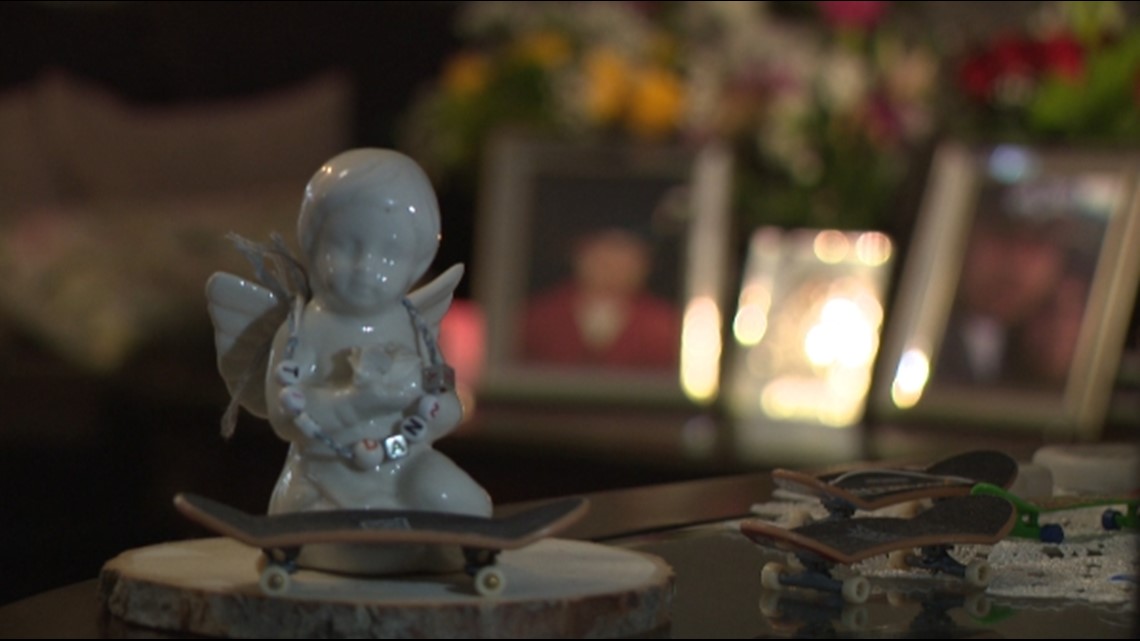
He said this process can take a long time to address and continue until a person is found competent.
“What if they never are?” Stapleton asked.
“This does happen, albeit, generally fairly rare,” Durns said.
McKeznie’s sister denies that he’s faking symptoms.
“It would be different if he did not have a long history,” she said. “Thirty-plus years. You're going to fake like you have a flight from reality? No. And then we would have to say that the professionals that are doing his competency evaluations are incompetent as well.”
As for why he’s not taking medication in jail to try and restore his competency, his sister said it comes down to fear he’ll get hurt.
“His words on why he did not want to be medicated is because ‘I'm on my back,’” she said after listening to him during a mental health hearing. “He was beaten almost to death on one occasion when he was incarcerated and so he does not want to be medicated because he has no way to defend himself.”
Chapter 4 Starting over
Back on the 'merry-go-round'
Rules for forced medication vary state by state, but Durns said the judge needs to find that it’s medically necessary and the least intrusive alternative.
In McKenzie’s case, the state was going to try again in another Sell Hearing with Judge Blair in June 2023.
“It’s a vicious circle,” said McKenzie’s attorney during the hearing, which was recorded by the courts and reviewed by the I-Team.
"And to be competent he has to take the medication but he doesn’t want to take the medication so we’re just swirling around,” Blair said in the court video.
The prosecutor tells the court that doctors have repeatedly determined medication is the best way for McKenzie to be restored to competency. But with McKenzie refusing the treatment, they need the judge to order it instead of dismissing the case again.
“We tried it that way and it didn’t work,” the prosecutor said.
If the judge sends McKenzie back to the hospital, it’s possible he could go into court-ordered treatment after an evaluation. As a civil process in Arizona, court-ordered treatment can last for one year. It’s also possible McKenzie could voluntarily take the medication and get released again while he’s there. That means the murder cases could start over in court from the beginning for a third time.
“We know that the defendant will take medication when given the carrot of being released,” the prosecutor said.
“I too am very concerned about someone like that being out,” the judge said in the video. “But he still has a very significant fundamental right to not be ordered to take medication against his will.”
McKenzie’s attorney insisted it was not a trick.
“The last thing Mr. McKenzie wants to do is be ordered to go to Valleywise, just to be released, just to come back to jail, to start the Rule 11 process all over again,” he said.
“Well, what if we find ourselves in the same spot another two years from now?” the judge asked. “Do we just keep doing this?”
“I understand the dilemma there,” McKenzie’s attorney responded. “I don’t have the answer to that. I don’t know if the law has to change to avoid situations like this.”
“We can’t change the law,” the judge later said. “So your poor client is stuck in this legal eddy, if you will, just going around and around. And we’re all doing it too.”
At one point, Judge Blair puts his head in his hands and sighs.
“I just think the individual liberty issue of not being forced to be medicated is so important that I think we need to try it again,” he said.
For the second time, Judge Blair denied the forced medication and ordered Major McKenzie back to Valleywise and dismissed the murder charges again.
“And yes, it may put us back on this merry-go-round,” the judge said. “I don’t know.”
Chapter 5 Will the case go to trial?
'This did not have to occur'
About a month after the judge denied the state’s second request for forced medication, both sides were back in court after another delay. Court records show McKenzie didn’t go to Valleywise.
In a video of the court hearing, one of the prosecutors indicated that he was deemed too dangerous to go to the behavioral health hospital.
A spokesperson for Valleywise said over email that on rare occasions they won’t admit someone if they could likely pose a great danger to other patients. Court paperwork shows hospital bed capacity was also an issue.
By August 2023, McKenzie had been evaluated. He complied with the treatment and could be released again. And just like before, McKenzie was re-arrested and charged with the murders for a third time.
“If he would have been able to get help,” his sister said. “We would not even be having this conversation.”
She pointed out that every time he was in a hospital, he complied with the treatment.
“He said ‘I have agreed to being medicated, but I'm doing it in a way where I will be safe’,” she remembered. “He would be better off medicated if he was hospitalized and medicated, not in the prison system.”
The loss of life and the charges against her brother break her heart.
“I just don't have words for it,” she said through tears. “Whatever the outcome of it is, it’s going to be difficult to live with all of it. This did not have to occur.”
A lot’s changed in the three and a half years this case circled through court.
“I never thought that we would have to be starting case after case after case against him because it was just gonna be dismissed,” Michelle Rubio said.
Danny Rubio’s neighbors have worked hard to keep their community safe. They’ve paid to put gates on alleyways and keep an eye out for one another. In November, Friday put on an event called Fall Festival in her neighborhood. There was a cookout, dunk tanks, games and a lot of laughter.
Phoenix Mayor Kate Gallego was at the event but declined to speak with 12News.
“It's amazing,” Friday said. “We've come a really long way within our community with the different things we’ve battled.”
The neighborhood even came together to build a community garden in Danny’s memory. It’s a place for Michelle Rubio to bring her family.

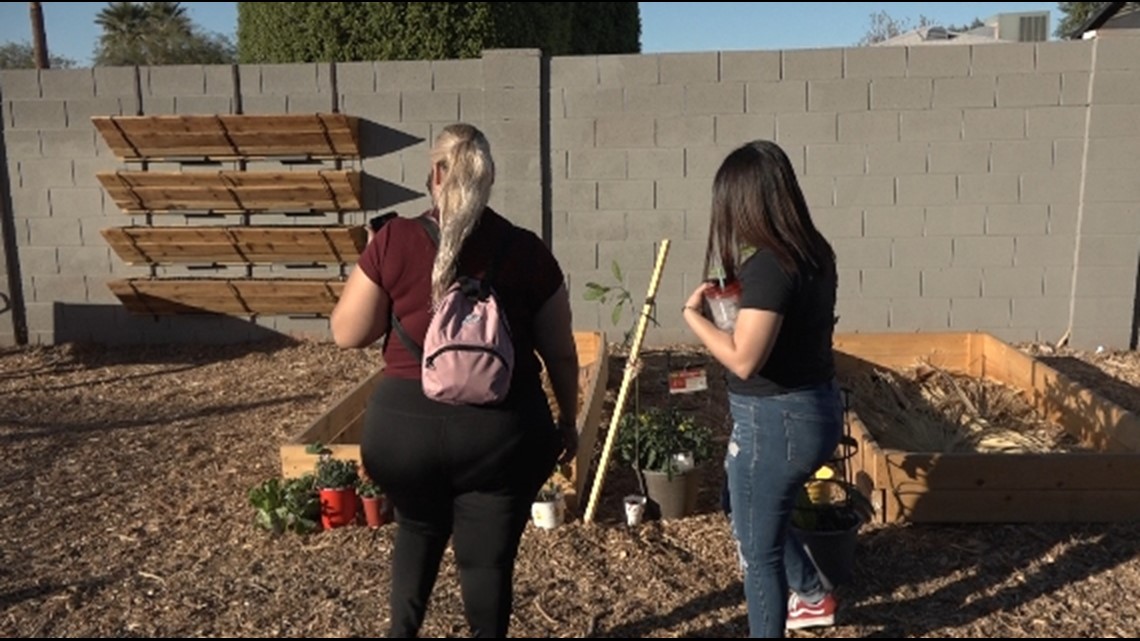
“We get a little bit emotional because we wish we had him here,” she said. “It gives us a little bit of joy through this whole process we’ve been going through just to get justice for him.”
In the latest re-filing of the murder charges, there haven’t been any requests for competency hearings as of Feb. 22, 2024, but that could always change. As of now, a trial is scheduled for April 2024.
McKenzie was assigned a new attorney for the third case, who has not responded to interview requests from the I-Team. McKenzie’s former attorney, who represented him in the first two murder cases, said he couldn’t comment “until the case has been resolved.”
In the meantime, Michelle will keep busy keeping up with DannyvRubio’s garden. She points out where she’ll be planting flowers and vegetables.
“I just had to bring some chiles into his little garden because he loved spicy food a lot,” she laughed. “He also really loved red roses.”
Growth in the garden as the seasons change and the murder case starts its own cycle over again.
For tips on this or any other story, contact the I-Team by emailing connect@12news.com or texting 602-444-1212
12News on YouTube
Learn more about other 12News investigations by subscribing to the 12News YouTube channel and watching our I-Team playlist.


